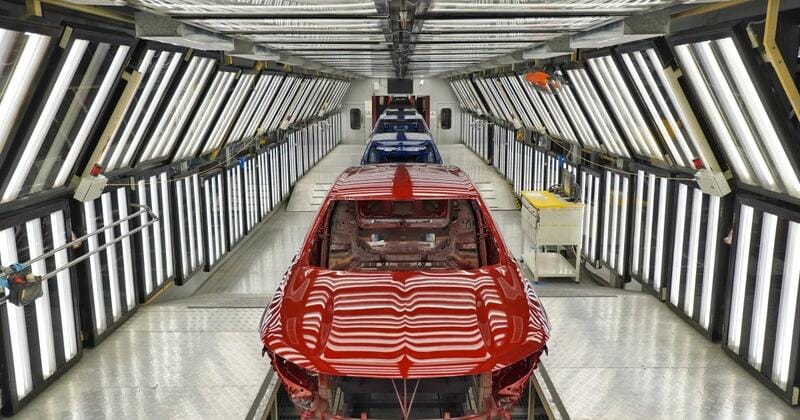
Shannon's excerpt from the article: "💯🏆HRW [excerpt]: Car Companies’ Complicity in #ForcedLabor in #China ...
The car industry is fulfilling Chinese President #XiJinping’s 2014 ambition to transform the country into 'an #automobile power.' Domestic and foreign #manufacturers in China produced and exported more cars than any other country in the world in 2023. Chinese companies also produce and export billions of dollars of parts used by global carmakers, from #electricvehicle #batteries to #alloy wheels. Many of the industry’s biggest #brands, including #BYD, #GeneralMotors, #Tesla, #Toyota, and #Volkswagen, use China as a manufacturing and supplier base, a vital sales market, or both. Cars made in China are increasingly on the streets of #Brussels, #London, #MexicoCity, #Sydney, and even #NewYork.
But while the Chinese government has welcomed car companies’ #investments on its own terms, it has so far shown hostility to the #humanrights and responsible sourcing policies many carmakers profess to apply across their businesses. Almost a tenth of the world’s aluminum, a key material for car manufacturing, is produced in the #Xinjiang #Uyghur Autonomous Region (Xinjiang or XUAR), a region in northwestern China, where the Chinese government is conducting a long-running campaign of repression against Uyghurs and other Turkic Muslim communities. Since 2017, Chinese authorities have perpetrated #crimesagainsthumanity in Xinjiang, including arbitrary detentions of an estimated one million people at the height of the crackdown, torture, enforced disappearances, mass surveillance, cultural and religious persecution, separation of families, sexual violence, and violations of reproductive rights, as well as subjecting Uyghurs and other Turkic Muslim communities to forced labor inside and outside Xinjiang.
Despite the risk of exposure to forced labor through Xinjiang’s #aluminum, some #car manufacturers in China have succumbed to government pressure to apply weaker human rights and responsible sourcing standards at their Chinese joint ventures than in their global operations. Most companies have done too little to map their #supplychains for aluminum parts and identify and address potential links to Xinjiang. Confronted with an opaque aluminum industry and the threat of Chinese government reprisals for investigating links to Xinjiang, carmakers in many cases remain unaware of the extent of their exposure to forced labor. Consumers should as a result have little confidence that they are purchasing and driving vehicles free from links to abuses in Xinjiang."
#news #business

